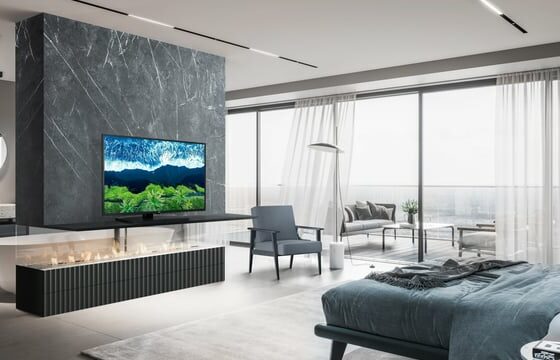
What Gets Remembered More Than Just the Pillows?
In today’s hospitality landscape, customer experience goes far beyond “friendly staff” and a “comfortable bed.” Guests no longer seek just rest—they want to feel like they’ve stepped into a personalized storyline, where every detail—from the room temperature to a well-timed push notification—conveys thoughtful care and meaning.
Modern hotels are becoming producers of curated experiences. They craft scenarios—digital, emotional, and immersive—that adapt to each guest and turn an ordinary stay into something unforgettable. Whether it’s an AI-powered concierge at the futuristic hotel or an eco-lodge offering dinner by the fire and a stargazing lecture, guests aren’t just looking for service. They’re looking for a narrative.
This article explores how scenario thinking, technology, and micro-moments are transforming hotel customer experience—through real-world examples and emerging best practices.
A Paradigm Shift: From “Service” to “Experience”
For years, hotel service was measured by factors like “staff politeness,” “room comfort,” and “check-in speed.” But today’s guests arrive with expectations shaped by platforms like Netflix, Spotify, Amazon, and TikTok—traditional service alone no longer stands out.
What matters now isn’t just what the hotel does for the guest, but how it feels. Customer experience has shifted toward perception—emotions, nuances, anticipation. Guests want to know that you understand them, that your service is consistently intuitive, and that their stay won’t feel like anyone else’s.
This marks the transition from service to scenario.
A scenario isn’t just a technical sequence of actions. It’s a thoughtfully designed journey where every step feels intentional and personalized:
- Their favorite TV channel turns on automatically.
- A warm light glows in the bathroom each evening.
- They receive a push notification inviting them to yoga—because they signed up for a wellness program last time.
The hotel becomes a space for narrative—where technology, design, and human touch combine into an experience. The guest is no longer a passive consumer of services. They are the protagonist of their own story.
Case Studies: When Technology Becomes the Scriptwriter of Experiences
YOTEL: The Scenario of “Smart Minimalism”
At YOTEL, there’s no traditional front desk—and staff are replaced with voice and text interfaces. But this isn’t about cutting costs. It’s a new kind of experience, one where guests take control of their stay without awkward social interactions.
- 24/7 AI concierge
- Room service, cleaning, or recommendations—all requested through an interface
- Instant responses—no lines, no phone calls
This approach resonates especially with younger travelers who prioritize speed and autonomy over “eye contact with the front desk.” Surprisingly, guest satisfaction actually increases:
- Staff workload is reduced
- The brand perception shifts toward “innovation without the fluff”
YOTEL proves that trust and hospitality can be built not just through human smiles, but through intuitive, predictive tech.
The Peninsula & Shiji: The Scenario of “Personalization as Luxury”
The Peninsula Hotels took a different path. Their scenario focuses not on reducing contact—but deepening it, invisibly, through technology.
Using the Shiji Enterprise Platform, the hotel creates unified guest profiles that store:
- Favorite coffee orders
- Preferred room temperature
- TV and interface language
These details don’t depend on staff memory—they’re embedded in the system itself.
+19% guest satisfaction
+27% guest loyalty
And this model works beyond luxury: the platform is easily adaptable for boutique hotels or mid-range chains. Because true personalization isn’t about being expensive—it’s about being exact.
Technology as a Tool for Scenario-Based CX
Technology used to be a back-office tool. Today, it’s the main director of the guest experience. With the right tools, hotels can move from reacting to predicting guest needs—and this applies far beyond global chains.
Here’s how it works:
1. Single Guest Profile
- Stores preferences, booking history, and responses to previous offers
- Enables personalization even in standard processes: room selection, push notifications, upsells
- Works across all hotel types—from luxury resorts to glamping sites
2. Event-Based Architecture
- Automates guest journey actions:
– Guest checks in → favorite playlist turns on
– Orders late dinner → housekeeping schedule automatically shifts for the next day
– Steps outside → system offers an umbrella if rain is forecast
3. AI Concierge and Chatbots
- Handle basic requests without live staff
- Offer proactive assistance—before the guest even asks
- Operate 24/7 without queues—especially valuable for small teams or remote hotels
4. UX as the New Human Touch
- The focus shifts to “interface-based care”
– A clean, intuitive app or in-room panel = a new form of hospitality - A great interface is like a great staff member—only it doesn’t tire or make mistakes
Scenarios in Small and Eco-Hotels: Why Scale Isn’t Everything
Scenario-based thinking in customer experience isn’t just for luxury chains. In fact, small and eco-hotels often rely on it the most to retain guests and create memorable “wow” moments.
Why?
Because these hotels usually have limited marketing budgets, but one priceless asset: an experience worth repeating.
Here’s what it looks like in practice:
- Thoughtfully designed stay scenarios: From a welcome message in the guest’s messenger app to personalized activity suggestions based on the weather or the kids’ ages.
- Mindful stay experiences: Mornings start not with a standard “8 to 10 AM breakfast,” but with a forest walk, meditation, or yoga session suggested via push notification.
- Micro-engagement scenarios: A bread-baking class, a fireside reading evening, or a photo scavenger hunt with a surprise gift—all seamlessly woven into the guest journey.
- Digital-first tools: Auto-messages, chatbots, and online guest portals allow small teams to deliver a high-touch experience that feels effortless and scalable.
A small hotel may not be able to afford a large staff—but it can afford a smartly designed customer journey. Not just a “list of options,” but a living scenario that makes guests feel like the main character, not just another occupant.
That’s how a quiet cabin in the woods becomes a powerful, memorable story—one people want to relive and recommend.
CX as a Strategic Advantage: Emotions That Drive Return Visits
The hospitality industry is built on repeat business. In a saturated market, guests can choose from countless options. But they only come back to places where they felt truly seen.
A scenario-based approach has a direct impact on key business outcomes:
1. Repeat Bookings = Pure Profit
The cost of acquiring a guest is high. Most hotels don’t earn profit from a first stay—they just recover marketing costs. Real margins come from the second, third, and fourth visit.
Scenarios—such as remembering preferences, offering relevant recommendations, or surprising guests with thoughtful gestures—dramatically increase return rates.
2. Loyalty = Free Marketing
Guests who feel like they’ve lived “their own story” will talk about it. On social media, in reviews, or with friends. This is especially powerful in eco-tourism and weekend travel, where personal recommendations matter more than star ratings.
3. Scenario-Based CX Reduces Operational Costs
Well-structured digital journeys—like self-service booking setup, app-based upsells, and online guides—take pressure off your staff. This is crucial at a time when the industry faces labor shortages and rising costs.
4. Impression is the New ROI
When a hotel becomes a “third place” (not home, not work), it transcends being a location. It becomes a stage for personal meaning and stories worth telling. And such places aren’t compared by price—they’re remembered.
The Hotel as Stage, the Guest as Hero
Today, guests don’t just book a room. They book a stage, props, and a role—and they want to feel like the story was written for them.
Customer experience is no longer just service. It’s not “bring me two lattes,” it’s “create a day I’ll remember.”
Every hotel now faces a choice: be just a place… or become part of the story.
Iana Petrova
Business development leader and hospitality technology expert








